- Apr 20
- Drug Addiction Treatment
Achieving and sustaining sobriety are the ultimate goals for anyone who starts an addiction treatment program. The choice to seek treatment for alcohol misuse changes a life for the better, but many people aren’t sure what to expect when getting sober, even with some research. The first days of sobriety are full of challenges and opportunities to strengthen recovery. Getting an idea of what it’s like can help you or your loved one navigate this time more successfully.
- What Does Sobriety Mean?
- What Happens to Your Body During Medically Supervised Withdrawal?
- The First 72 Hours Sober
- The First Week Sober
- The First Month Sober
- Building New Routines
- Building Physical and Mental Health
- Dealing With Post-Acute Withdrawal Syndrome (PAWS)
- Five Early Sobriety Tips
- Prepare for Sustained Sobriety at Gateway Foundation
This survival guide covers the major milestones in early recovery and provides tips on managing common challenges.
What Does Sobriety Mean?
The dictionary definition of sobriety is simply not being intoxicated. However, true and comprehensive sobriety means so much more than just an absence of drunkenness. Everyone has a slightly different experience of sobriety, but most people would agree it comes with the following benefits:
1. Clear Thinking
Alcohol use has severe effects on cognition, even when the use is light to moderate. Chronic heavy drinking erodes the brain’s ability to pay attention, make decisions, solve problems and plan for the future. Additionally, alcohol addiction frequently develops as a means of avoiding negative thoughts in the first place.
Remaining sober helps reverse some of the cognitive effects of alcohol, allowing you to think more clearly and see life events in a more balanced and realistic light.
2. More Freedom
Alcohol misuse takes over lives at the expense of essential activities. Someone addicted to alcohol eventually becomes completely focused on obtaining alcohol, consuming it, and dealing with the consequences of drinking, like blackouts and hangovers. Hobbies, friendships, and responsibilities fall by the wayside as alcohol consumes the majority of a person’s time.
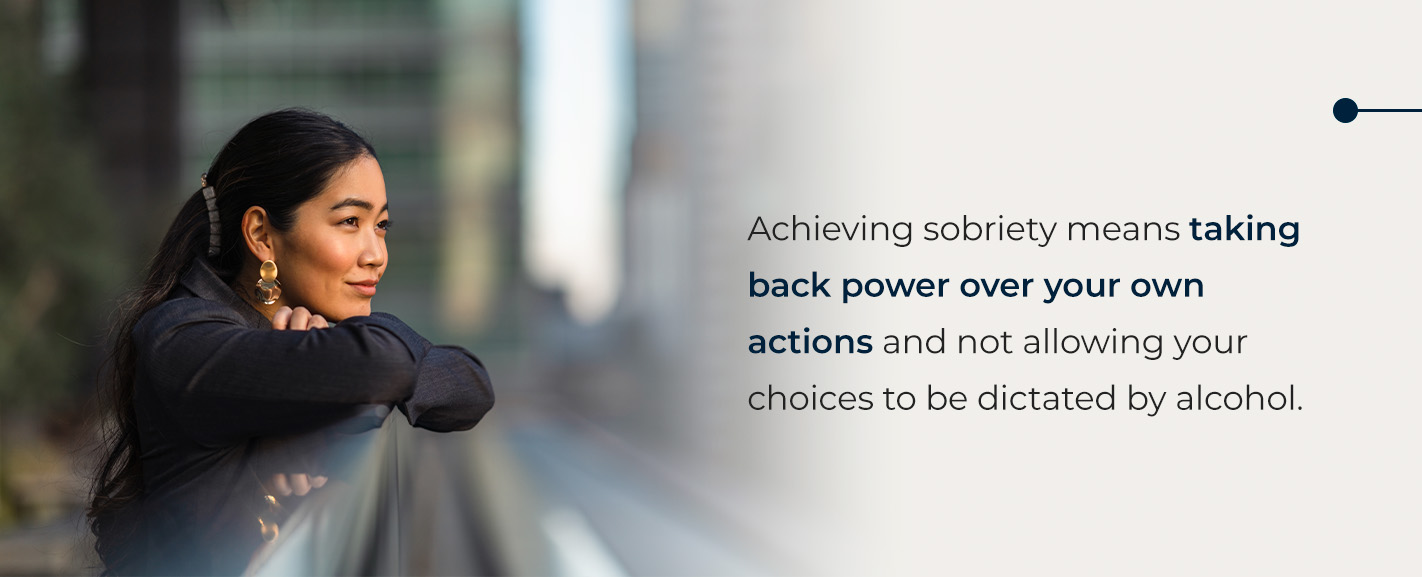
3. A Sense of Fulfillment
The constant quest for alcohol removes many of the elements necessary for a person to feel fulfilled in life. Whether someone finds meaning in their work, through volunteering, or some other means, alcohol addiction will destroy it in time.
Becoming sober will help you revitalize your role in the world and help bring clarity to what gives your life meaning. Once you realize how much you can achieve without the influence of alcohol, you are much more likely to set goals and meet them, bringing a greater sense of fulfillment to your life.
What Happens to Your Body During Medically Supervised Withdrawal?
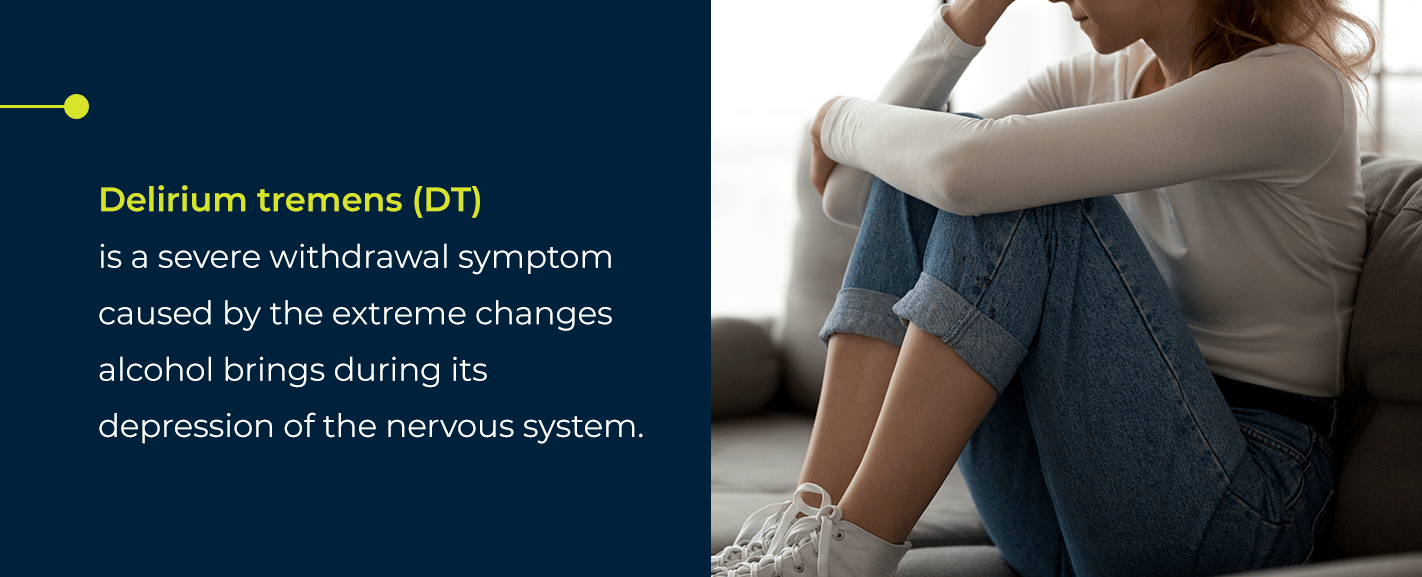
- Wine: four to five pints
- Beer: seven to eight pints
- Hard alcohol: one pint
The symptoms of delirium tremens can be extremely severe and escalate very quickly. They may include:
- Seizures
- Delirium
- Physical tremors
- Irritability and agitation
- Fear or anxiety
- Sudden bursts of energy
- Restlessness
- Sensitivity to stimuli, like sound, light and touch
- Fatigue, sleepiness or stupor
- Deep sleep lasting a day or more
These symptoms are impossible to manage on one’s own, as well as extremely unsafe to handle without medical supervision. The opposite approach to cold-turkey withdrawals is medical detoxification, which attempts to flush the alcohol out of your system as quickly as possible. This approach may not be safe either, as it can cause chemical imbalances that worsen withdrawal symptoms during the first days of sobriety.
The safest approach is medically supervised withdrawal, where your body eliminates alcohol at its own pace while you are monitored and given medication for your comfort and safety as necessary. Medically supervised withdrawal involves 24-hour access to nursing care and a medication plan directed by a physician. The goal is to make you as comfortable as possible as you withdraw from alcohol use.
The First 72 Hours Sober
The first three days of sobriety are typically focused on managing the symptoms of withdrawal. In addition to potential DT, common symptoms to be managed include:
- Anxiety and depression
- Headaches
- Fatigue
- Insomnia
- Jumpiness and nerves
- Heart palpitations
- Nausea and vomiting
- Stomach pain
- Loss of appetite
- Rapid mood swings
- Sweating
These symptoms usually peak around 72 hours after the last drink, although DT typically strikes between 48 and 72 hours without drinking. From three to five days sober, what to expect is a struggle with minor to severe symptoms. If your symptoms go beyond minor, your medically supervised withdrawal team may provide you with medication to reduce the severity. You may receive one or more of the following treatments:
- Benzodiazepines: This class of medication decreases the likelihood of seizures occurring during withdrawal and helps manage related anxiety.
- Neuroleptics: These medications inhibit activity in the central nervous system and can prevent seizures while reducing withdrawal-related agitation.
- Nutritional support: A key part of medically supervised withdrawal is the correction of nutritional deficiencies and imbalances by administering specific nutrients and developing an appropriate diet.
Your withdrawal symptoms will be evaluated upon program intake, and medical staff will determine whether you need these or other medications to manage symptoms effectively.
Whether you are participating in a residential addiction treatment program or attending outpatient alcoholism treatment, your initial three days of sobriety will involve many firsts. You’ll be meeting your care team, consisting of a physician, nursing staff, and therapists. You will also start getting to know some of the other participants in your program through group therapy or other activities.
Many people find that all the new things to get used to can distract from the emotional symptoms of early withdrawal, such as anxiety.
 The First Week Sober
The First Week Sober
After the first three days, you will likely be relaxing into your treatment program and begin to notice significant changes in your physical and mental state. While they can initially feel overwhelming, these changes are a sign that your brain is beginning to readjust to functioning without alcohol.
Physical Changes
The physical changes in your first seven days without alcohol will be mostly tied to withdrawal symptoms. Although most people find that their symptoms begin improving after the 72-hour peak, there are still some longer-lasting changes that can be challenging to handle. The ability to sleep and eat normally are two of the most significant:
- Insomnia: Not being able to fall asleep or stay asleep makes the early days of sobriety even more exhausting, but revitalizing your sleep schedule is one of the most important things to achieve for a stable recovery. In the first week or two, you might receive medication to help you sleep better, including natural solutions like melatonin.
- Appetite: Getting the right nutrition is as important as getting enough quality sleep, but most people suffer a lack of appetite during the first week and possibly beyond. Because you initially won’t be able to eat much, it’s imperative to focus on getting the optimal balance of nutrition in each meal.
While your body and brain will struggle to adjust to the critical functions of sleeping and eating without alcohol, this struggle is an essential part of developing routines you will need in recovery.
Emotional Changes
To say the first week of sobriety feels like a roller coaster is an understatement. Alcohol’s ability to blunt and mask emotions results in a flood of feelings once you stop drinking. Depending on your history of alcohol abuse, you may end up feeling several years’ worth of emotions coursing through you with little to no warning. You may be saturated in mourning and pain one moment, only to feel the euphoria associated with a good therapy session moments afterward.
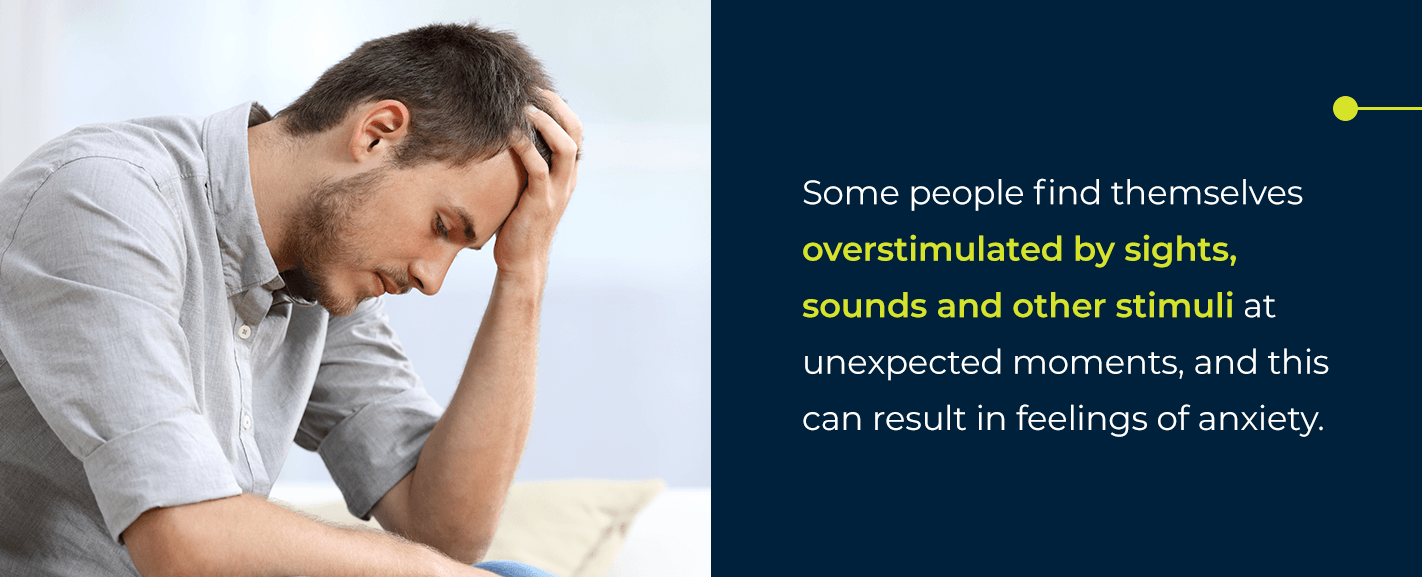
Alcohol addiction treatment relies heavily on different types of therapy that help participants identify, process and accept their emotions. In the first week, you will learn several of the tools necessary to cope with overwhelming emotions throughout your recovery.
While many of the emotions you experience in the first week of sobriety may be negative, there will also be exceptional bright spots as you discover your own strength and realize you have the power to succeed in staying sober. This hard-earned feeling of accomplishment can help keep you on track in the days to come.
The First Month Sober
For the first week to the first 30 days without alcohol, your goal will be to achieve stability in your sobriety. That means doing rigorous psychological work to investigate the roots of your alcohol addiction and putting newly learned coping mechanisms into practice each day. Once you reach the significant milestone of a month without alcohol, you face a new set of feelings and challenges surrounding your recovery.
Feeling Like Yourself Again
At the one-month mark, most people report that they start to feel more like themselves again. Chronic drinking dulls the mind and emotions so that many people lose sight of all the traits that they associate with who they are intrinsical. After 30 days of sobriety, you will likely feel like you’re becoming yourself again in subtle ways. Maybe the receding brain fog will remind you how much you used to like your job, or you feel a return of the drive to socialize with friends and family.
One month in, you may find yourself more attuned to the little things in life that alcohol used to overshadow. Small events that pique your sense of humor or provoke a sense of wonder may start to feel more life-affirming, further supporting your ability to enjoy life without drinking.
You may also find that your confidence and self-esteem are returning. Resisting temptation, avoiding triggers, and healthily dealing with your emotions for a month straight is an achievement to be respected and celebrated.
Building New Routines
Now that you are growing more confident in your ability to stay sober, it’s time to create a routine supporting that sobriety. This is especially crucial if you transition directly from a highly structured residential program to complete independent living. If you move from residential treatment to a sober living home, you get the benefit of a semi-structured and drug-free environment in which to build routines.
Either way, creating a workable daily structure for yourself is essential to minimizing the impact of cravings and ensuring you remain productive and motivated. Some of the basics of a successful routine include:
- Waking up and going to sleep at the same time every day.
- Prioritizing recovery meetings.
- Leaving time for daily chores.
- Practicing new hobbies or skills.
- Making time for friends and family.
The essence of a good recovery routine is balance and flexibility. Don’t try to schedule every minute of every day, or you may get burned out. Work on your schedule until you feel you have reached the right balance of free time and scheduled activity for you.
Building Physical and Mental Health
A central element of creating routines is working on your health. Alcohol abuse causes significant damage to your mind and body, and it’s important to address the health of both if you want a sustainable recovery. Work on these three elements of health to help repair the damage done by alcohol.
1. Diet
People struggling with alcohol addiction tend to have very poor nutrition. This is partially because of bad food choices made under the influence, and partially due to the effects of alcohol on crucial organs involved in digestion — including the liver and pancreas. To reverse some of the damage and improve your physical health, it’s important to create a diet plan to address deficiencies and imbalances. Your diet should ensure you get enough carbohydrates, amino acids, dietary fat and other nutrients including:
- Iron
- Folate
- Vitamins B6 and B12
Incorporating these nutrients along with plenty of fresh fruits and vegetables improves physical health but also helps normalize the production of neurotransmitters. This results in improved mood and fewer alcohol cravings.
2. Exercise
Few people with alcohol addiction get any regular exercise, let alone the recommended 150 minutes of moderate aerobic activity per week. Incorporating physical activity back into your daily routine is one of the best things you can do for your physical and mental health. Although aerobic exercise is recommended, any type of activity is still beneficial. Even if you are unable to go for a run, you may be able to take a brisk walk.
All types of exercise have the benefit of improving mood for those still struggling with depression and reducing cravings for alcohol. This helps reduce the impact of relapse triggers while improving your overall health. Exercise should be a priority in the development of your recovery routine.
3. Therapy and Groups
Ongoing mental health care is a key factor in maintaining sobriety after 30 days without alcohol. Aftercare programs address the need for continued support by providing services like:
- Continued outpatient counseling
- Access to addiction recovery groups such as 12-Step meetings
- Access to sober living
- Alumni programs
Utilizing these resources and regularly attending therapy and recovery groups helps create a support network you may need throughout your continued sobriety.
Dealing With Post-Acute Withdrawal Syndrome (PAWS)
Around 75 percent of people in recovery from alcohol addiction will experience Post-Acute Withdrawal Syndrome. This condition presents a set of symptoms with fluctuating severity, which may appear or reappear in the weeks and months after cessation of drinking. Some of the common signs of PAWS include:
- Having trouble thinking, remembering things, and learning.
- Irritability, anxiety, or panic.
- Depression, pessimism, and apathy.
- Disturbed sleep.
- Increased sensitivity to stressful events or situations.
PAWS can make people feel like their recovery is stalling or losing progress, but this is not the case as long as sobriety remains intact. Coping mechanisms learned in therapy combined with a healthy diet and exercise are the best ways to deal with PAWS at and after the first 30 days without alcohol.
Five Early Sobriety Tips
Your first month without alcohol will be full of ups and downs. Here are five quick early sobriety tips to keep in mind as you embark on the recovery journey:
- Remember Your Reasons
It’s essential to remain in touch with why you got sober in the first place. The further you progress in your recovery, the easier it is to lose sight of why you decided to stop drinking. Make a list of the motivations behind your decision to pursue treatment, and keep it close at hand to remind yourself why you’re working so hard.
- Find a Hobby
Boredom can be a relapse trigger in and of itself, so finding something to do in your free time can be a valuable tool in your sobriety kit. Hobbies that engage you physically, socially, or intellectually can help reduce the frequency and intensity of your cravings and provide a sense of purpose and fulfillment.
 3. Don’t Get Overconfident
3. Don’t Get Overconfident
It’s common for people in recovery to start feeling like they are “cured” and stop attending groups and therapy. This mistake can easily lead to relapse. It’s important to remain humble and continue to seek out ongoing support even during periods when you feel confident about your recovery.
4. Be Prepared to Sacrifice Relationships
One of the hardest parts of sobriety is seeing your social circle through clear eyes. While many people develop alcoholism through drinking alone, many others find that many of their friends enable or even encourage drinking. When you realize someone you care about is unhealthy for your recovery, you have to be prepared to alter or give up that relationship for the sake of your sobriety.
5. Forgive Yourself and Move Forward
Most people leave a trail of hurt in their wake in the course of their alcoholism. You may have said or done things you would never do in your sober state, and it’s often easy to let yourself be consumed by guilt. While you certainly should offer heartfelt apologies to those you have harmed, you must also prepare for and accept rejection in some cases. It’s critical to process and accept the hurt caused by your addiction, and to focus on preventing it from happening again through continued sobriety.
 Prepare for Sustained Sobriety at Gateway Foundation
Prepare for Sustained Sobriety at Gateway Foundation
If you or someone you love is struggling with alcohol abuse, turn to Gateway Foundation. Our alcohol addiction treatment programs are evidence-based and offer multiple levels of care to meet the needs of any individual. If you know it’s time to seek effective addiction treatment, call Gateway Foundation at 877.505.4673 or contact us online to learn more about what to expect when getting sober. Don’t let one more day be ruled by alcohol. Get in touch today.

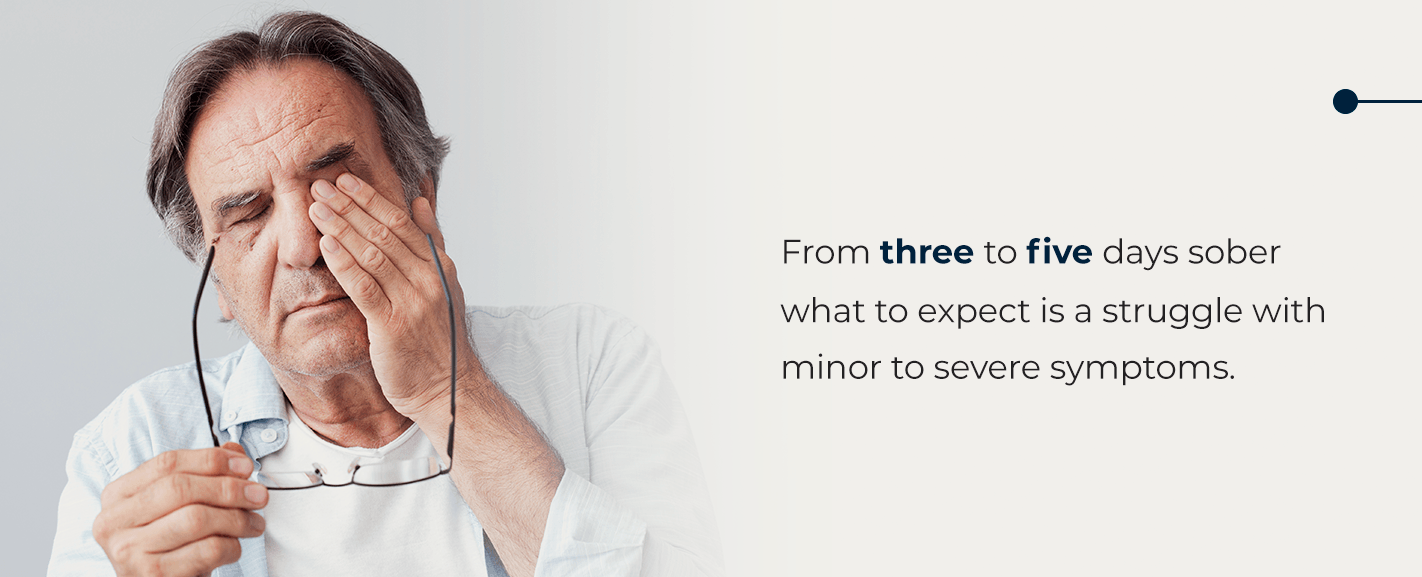
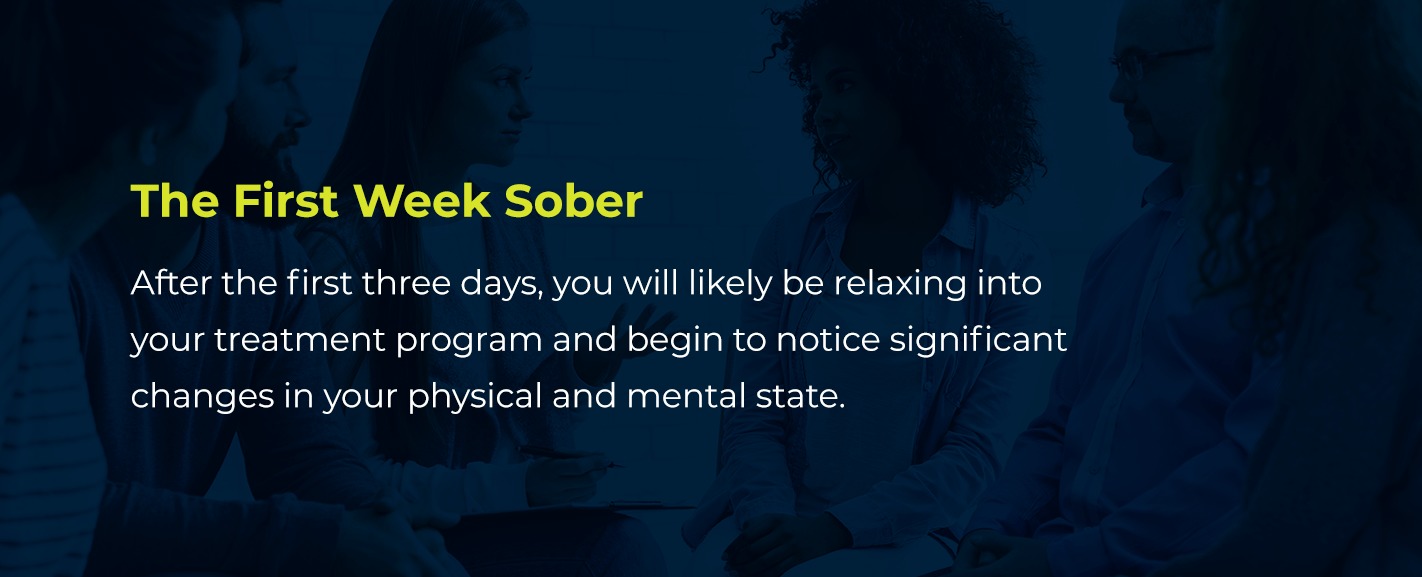 The First Week Sober
The First Week Sober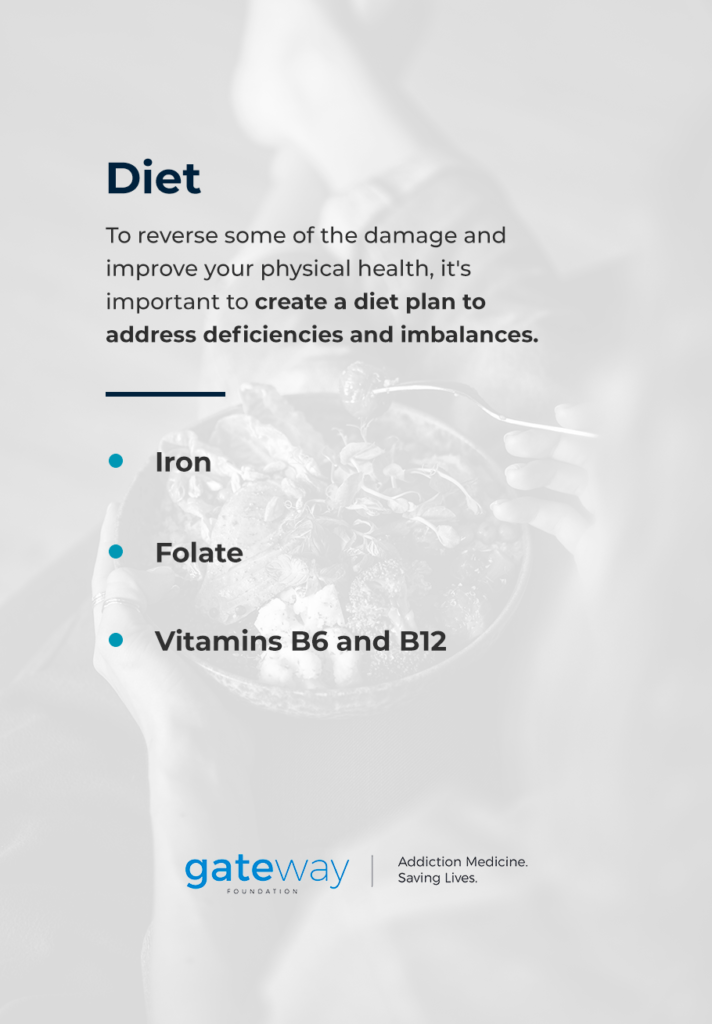
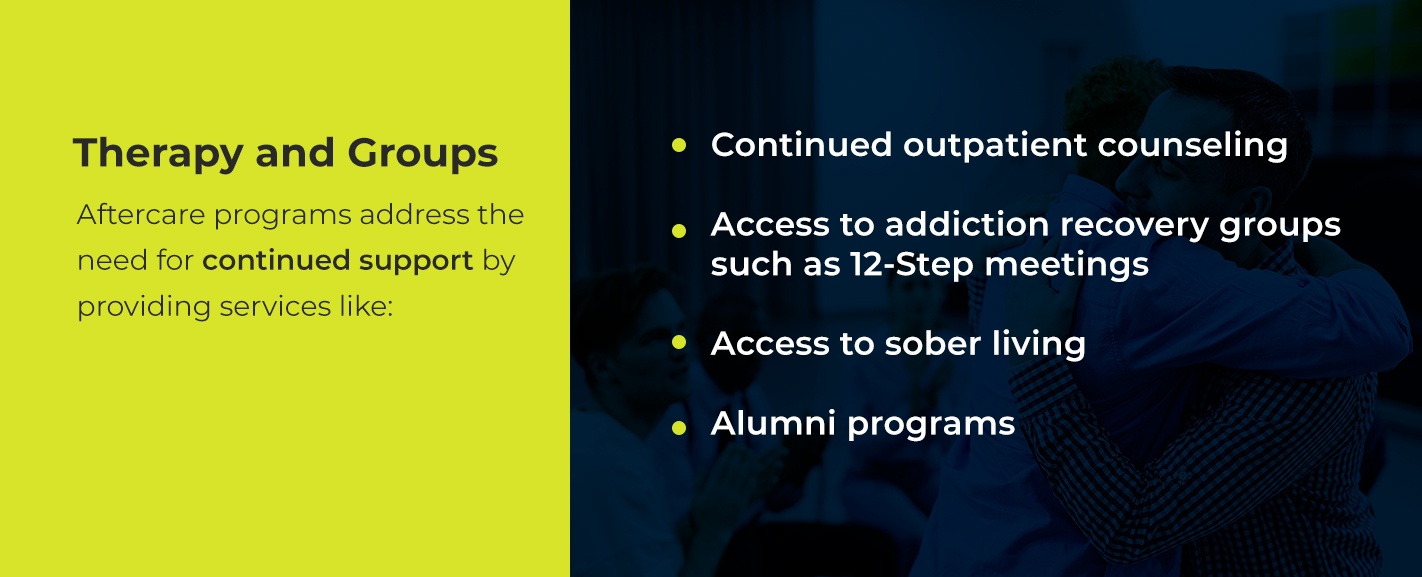
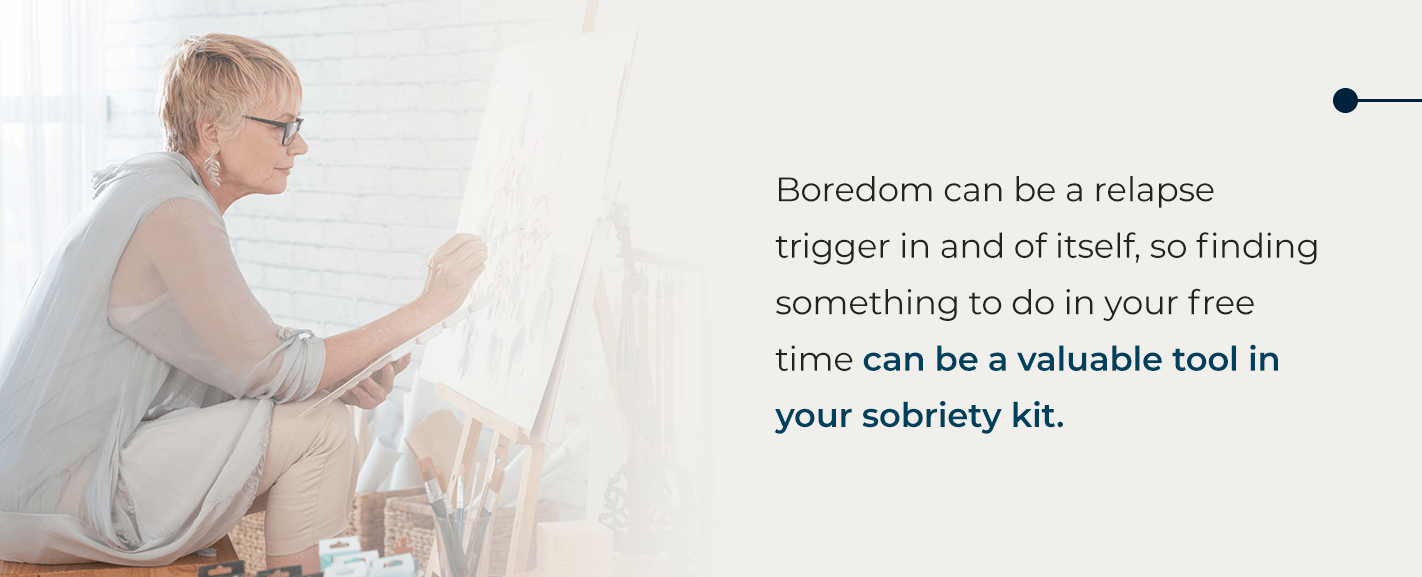 3. Don’t Get Overconfident
3. Don’t Get Overconfident

